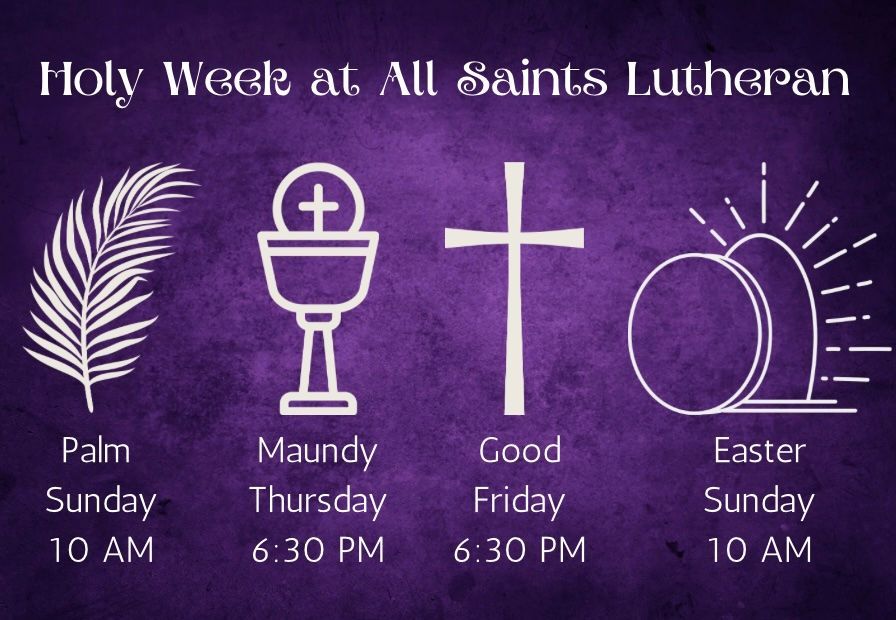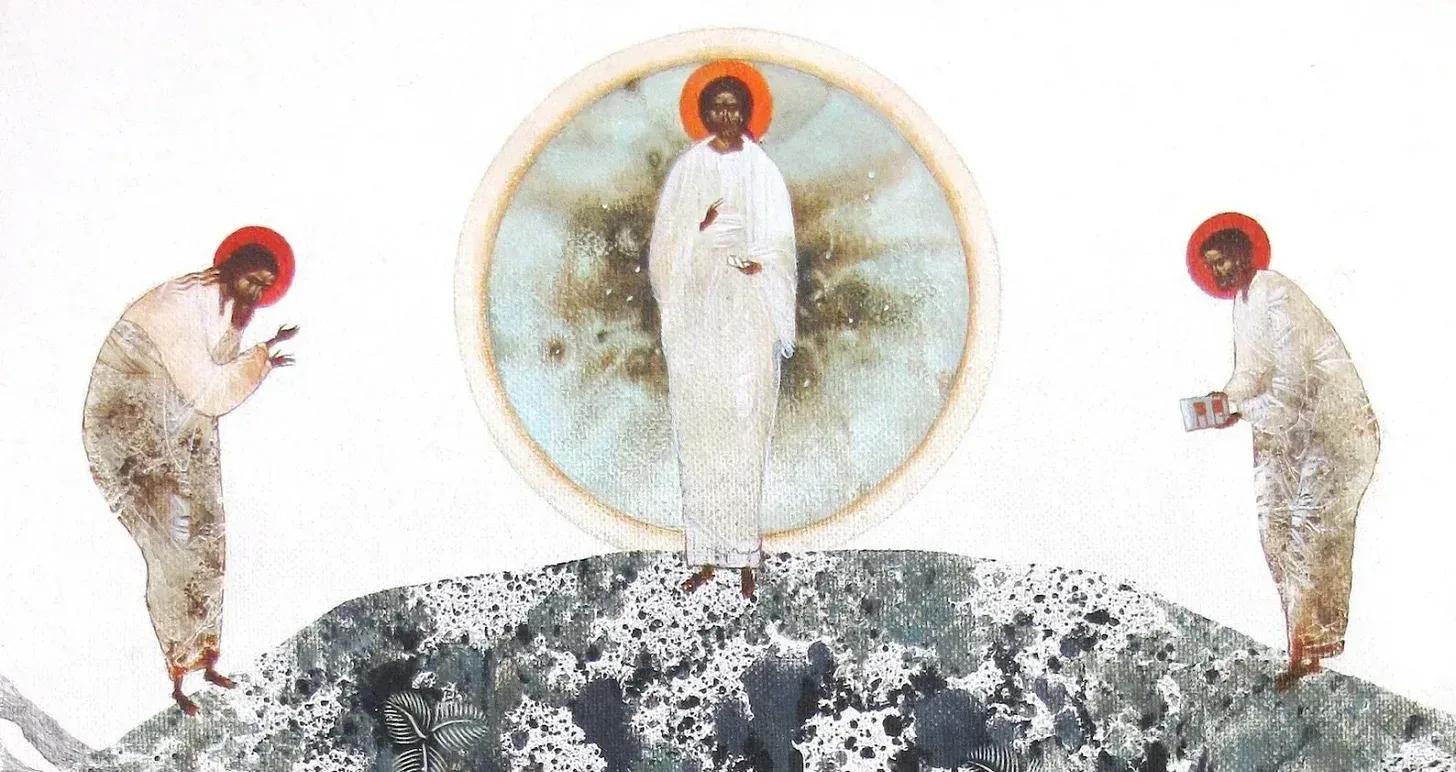Ash Wednesday, March 5, 2025
When I was in seminary,
there were these bumper stickers
all over campus,
big yellow rectangles
with blue writing
that said,
“WIGIAT,”
W-I-G-I-A-T,
in all caps.
At first,
I thought it was some kind of slogan,
or inside joke,
a sort of portmanteau
for some local cultural reference
I just didn’t understand.
Jennifer had a class that first semester
that would soon provide an answer
to what became a burning question.
WIGIAT
was an acronym for a central,
missional question
we should be asking of ourselves
and our congregations
in times of grief,
or uncertainty
or chaos.
That question is
Where is God in all this?
I have asked that question a lot lately.
Where is God
in all this uncertainty?
Where is God
in all this anxiety?
Where is God
in all this rage and animosity?
Where is God?
This missing God
shows up in Joel.
Blow the trumpet in Zion;
sound the alarm on my holy mountain!
Let all the inhabitants of the land tremble,
for the day of the LORD is coming,
it is near-
a day of darkness and gloom,
a day of clouds and thick darkness!
Like blackness spread upon the mountains,
a great and powerful army comes;
their like has never been from of old,
nor will be again after them in ages to come.
Then the prophet advises that the people repent,
beg God for mercy,
so that their enemies don’t ask,
“Where is their God?”
The enemies of the people of God
as this question to deride the God of Israel
and harass the people.
Where is this God of yours, huh?
Why doesn’t this almighty God of Angel armies
come and rescue you?
Is your God busy?
Is your God sleeping?
Is your God mad at you?
Maybe your God just abandoned you.
Maybe your God likes us more than you.
Where is this God of yours, anyway?
The Apostle Paul
makes no better case.
But as servants of God,
writes Paul,
we have commended ourselves
in every way:
in great endurance,
afflictions, hardships, calamities,
beatings, imprisonments, riots,
labors, sleepless nights, hunger”.
I’m sure they left this language
out of the brochure
when recruiting folks to sign on
to travel with Paul on these journeys.
If this is what the apostles endured,
then what is even the point of this faith
in the first place?
Why didn’t God rescue even the Apostle Paul,
who wrote most of the New Testament,
from such tremendous suffering?
Where is this God, anyway?
And then Jesus
wants us to practice our piety in secret.
Wants us to fast and pray and give alms,
in secret,
because God is in secret.
So, the world is falling apart,
God is in hiding,
and you want me to repent?
The people of Gaza are starving
while aid trucks are blocked
and aid workers are bombed,
and you want me to fast and pray?
The people of Ukraine
have been under siege for 3 entire years,
civilians murdered and buried in mass graves
while their children are stolen,
entire cities burned to the ground,
and you want me to put ashes on my face
and spend 40 days in mourning
over my sin?
Billionaires the world over
use their money and influence
to wreck the government programs
that help the poorest people
while making themselves even richer,
and you want me to give alms to the poor?
Institutions are under attack,
refugees and immigrants
are being demonized and terrorized,
our entire denomination was accused of money laundering
because we used federal grants
to help find homes for orphans,
and then you want me to comb my hair,
wash my face,
and act like I am not peptic with rage,
pretend like I don’t cry in frustration
when no one is looking,
masquerade like the climate is not changing
before our very eyes,
shake hands and demonstrate “good sportsmanship,”
as though politics is some sort of ball game
and not the process by which we distribute pain?
So, yeah,
Where is God in all this?
It might help to know
that this question
does not assume that God is absent,
asking us to ponder why;
instead, this question presumes
that God is always present
and reminds us to look for God
in the very places God has told us God will always be.
We do not serve a God of prevention,
who swings in like Tarzan at the last second
to sweep us up to safety.
We serve a God of redemption
who stands in perfect solidarity with all our suffering
and transforms our pain into purpose,
our sorrow into joy,
our mourning into dancing,
our death into resurrection.
The Lenten call to repentance
is the call to a change of perspective
and a change of behavior.
God is not asking us to take the blame
and the punishment
for the suffering of the world;
but God is calling us to share in the responsibility
for the suffering of the world.
We do not mark our foreheads with ashes
to show the world how pious we are,
but to smear our faces
with a stark reminder
that we will not be rescued from death,
that we share in the human condition
with everybody else on the earth,
and so does God in Christ.
The invitation to repentance
is the invitation to a change in perspective
and a change in behavior.
If you cannot see what I am talking about,
turn off the TV,
log out of all your social media,
and get close to the suffering of your neighbors.
You will find the hidden God
in these relationships.
If you are already all too close to this suffering,
turn off the TV,
log out of all your social media,
and look around for the God
hidden with you in your suffering.
When you look at all the suffering of the world
and wonder where God is in all this,
remember these ashes,
remember that you share this human condition
with everybody else
and with Christ.
Change your perspective.
Change your behavior.
Change the world.
Amen.










